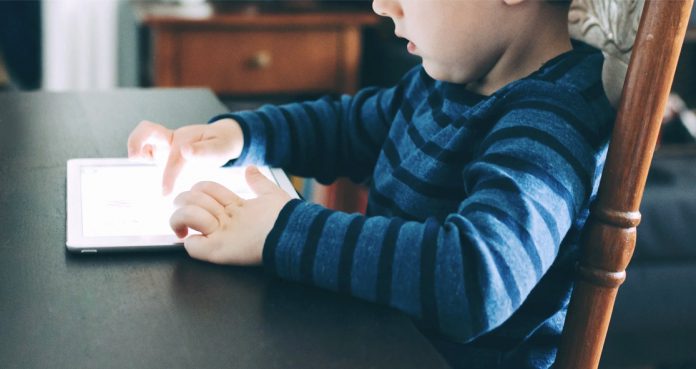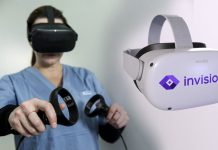Over the last decade, screen time use by children has substantially increased and experts blame televisions, tablets, and smartphones for affecting the brain development in infants, toddlers, and preschoolers.
A new study published Monday in JAMA Pediatrics has found that the MRI brain scans of children between the ages of 3 and 5, who used screens for more than one hour a day, showed poor brain development, especially in the white matter that plays a pivotal role in the development of literacy, learning, language, and cognitive skills.
In short, higher the use of screen time, lesser is the development of the brain’s white matter.
Lead study author and pediatrician Dr. John Hutton from Cincinnati Children’s Hospital said, “This is the first study to document associations between higher screen use and lower measures of brain structure and skills in preschool-aged kids.”
“This is important because the brain is developing the most rapidly in the first five years,” added Dr. Hutton. “That’s when brains are very plastic and soaking up everything, forming these strong connections that last for life.”
Several studies have shown that too much TV viewing in children could lead to issues with paying attention and thinking clearly, increasing the risk of eating habits and behavioral issues. Excessive screen time is also associated with poor sleep, impaired cognitive function, and language delay.
Dr. Hutton explained, “It’s known that kids that use more screen time tend to grow up in families that use more screen time. Kids who report five hours of screen time could have parents who use 10 hours of screen time. Put that together and there’s almost no time for them to interact with each other.”
He noted that it is easy to take toady’s screens everywhere, adding, “They (children) can take screens to bed, they can take them to meals, they can take them to the car, to the playground.”
Experts are more concerned about younger children who are exposed to screens. “About 90 percent are using screens by age one. We’ve done some studies where kids are using them by 2 months old to 3 months old,” said Dr. Hutton.
In fact, in April, the World Health Organization (WHO) recommended that children below one year should not be exposed to electronic screens.
The new study examined the MRI brain scan results of 47 healthy preschoolers who were exposed to electronic screens. The results showed poor development of white matter in the brain.
The white matter of the brain contains fibers that connect the brain cells to the rest of the nervous system. And the poor development of these fibers can decrease the processing speed of the brain, affecting the ability to learn, read and pay attention.
Pediatrician Dr. Jenny Radesky, who was not part of the study, said, “These findings are fascinating but very, very preliminary. We know that early experiences shape brain growth, and media is one of these experiences. But it’s important for parents to know that these results don’t show that heavy media use causes ‘brain damage.’” Dr. Hutton agreed, “It’s not that the screen time damaged the white matter,” adding, “Perhaps screen time got in the way of other experiences that could have helped the children reinforce these brain networks more strongly.”






















